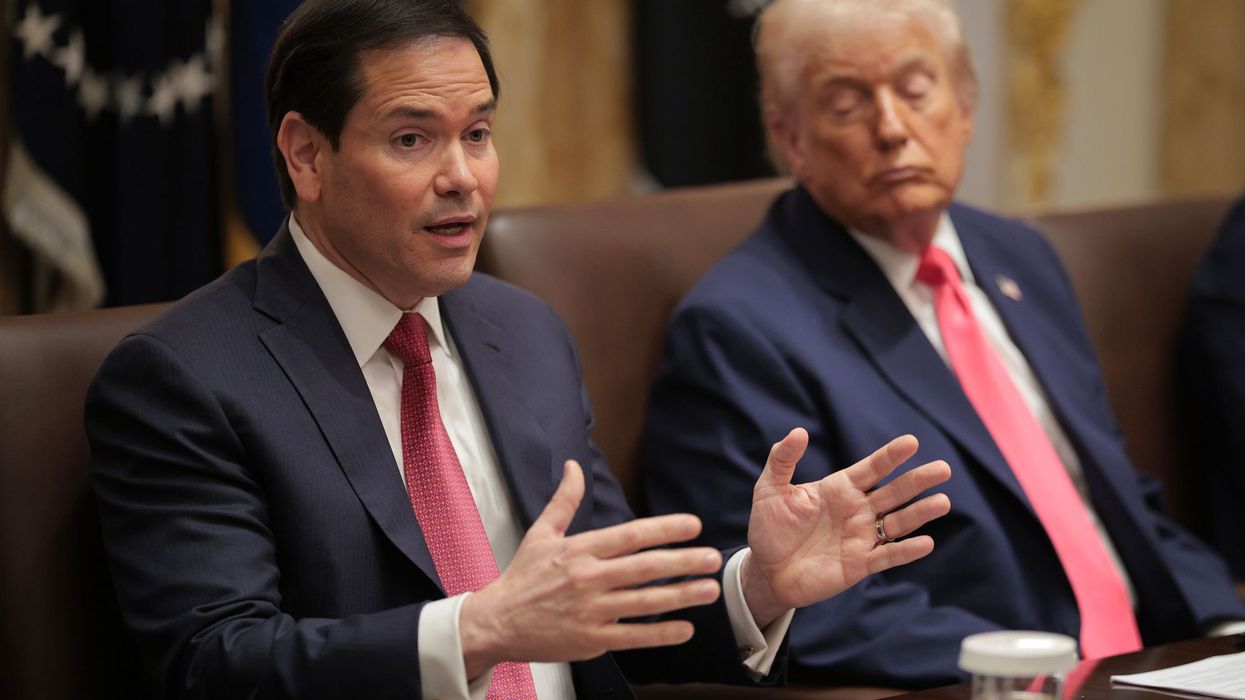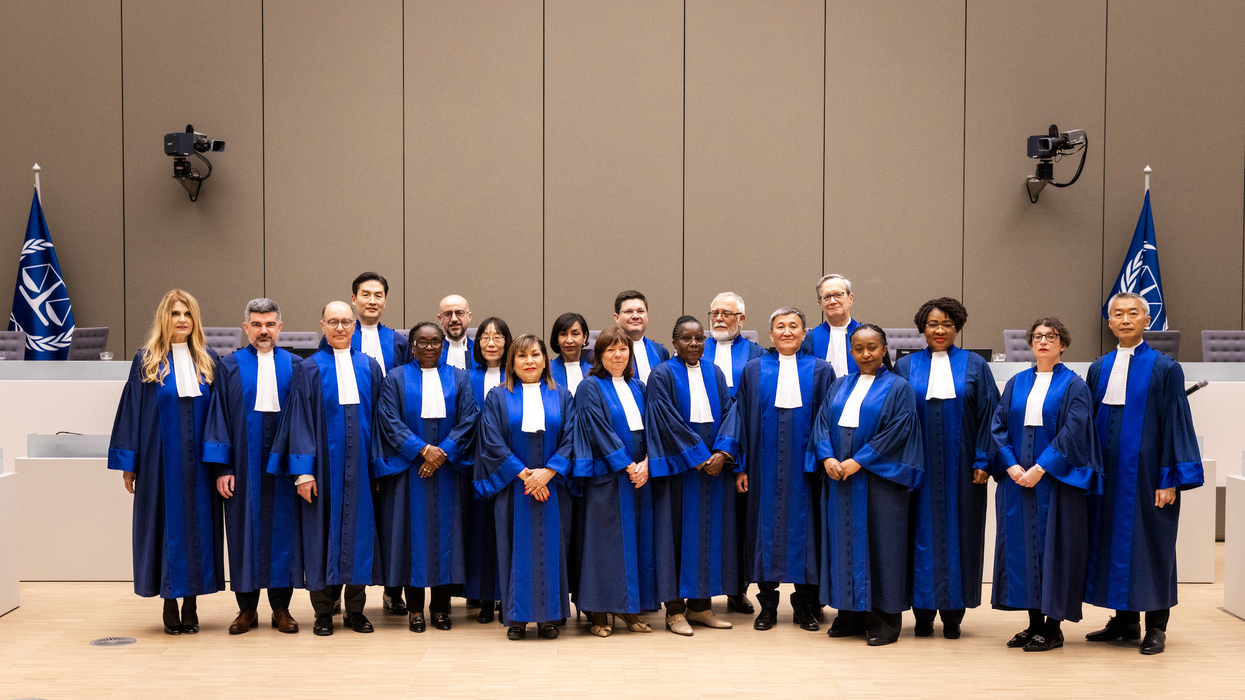ICC Slams New US Sanctions on Judges as 'Flagrant Attack' on Rule of Law
"When judicial actors are threatened for applying the law, it is the international legal order itself that is placed at risk," the court said.
The International Criminal Court and human rights groups on Thursday condemned new US sanctions on two more of the tribunal's judges, which brought the total number of sanctioned ICC jurists to 11 amid the Trump administration's escalating campaign of retaliation against people and institutions seeking to hold Israel and the United States accountable for their alleged crimes.
"Today, I am designating two International Criminal Court (ICC) judges, Gocha Lordkipanidze of Georgia and Erdenebalsuren Damdin of Mongolia, pursuant to Executive Order 14203, 'Imposing Sanctions on the International Criminal Court,'" US Secretary of State Marco Rubio said in a statement, referring to President Donald Trump's February edict.
"These individuals have directly engaged in efforts by the ICC to investigate, arrest, detain, or prosecute Israeli nationals, without Israel’s consent, including voting with the majority in favor of the ICC’s ruling against Israel’s appeal on December 15," Rubio added, referencing Monday's rejection of an Israeli bid to block a probe into alleged war crimes committed during the genocidal two-year war on Gaza.
Although Israel and the US are not ICC members and do not recognize the Hague-based tribunal's jurisdiction, Palestine is a state party to the Rome Statute governing the court. The treaty says that individuals from nonsignatory nations can be held liable for crimes committed in the territory of a member state.
Last year, the ICC issued warrants for the arrest of Israeli Prime Minister Benjamin Netanyahu and former Israeli Defense Minister Yoav Gallant for alleged crimes against humanity and war crimes in Gaza, including murder and forced starvation in a war that has left more than 250,000 Palestinians dead, wounded, or missing.
The Trump administration had previously sanctioned nine other ICC jurists: Chief Prosecutor Karim Khan (United Kingdom), Deputy Prosecutor Nazhat Shameem Khan (Fiji), Deputy Prosecutor Mame Mandiaye Niang (Senegal), Judge Solomy Balungi Bossa (Uganda), Judge Luz del Carmen Ibáñez Carranza (Peru), Judge Reine Adelaide Sophie Alapini-Gansou (Benin), Judge Beti Hohler (Slovenia), Judge Nicolas Yann Guillou (France), and Judge Kimberly Prost (Canada).
The affected judges have recently described how the US sanctions have left them and their families—who are also blacklisted—"wiped out economically and socially."
Responding to the new US punitive measures, the ICC said Thursday that "these sanctions are a flagrant attack against the independence of an impartial judicial institution which operates pursuant to the mandate conferred by its states parties from across regions."
"Such measures targeting judges and prosecutors who were elected by the states parties undermine the rule of law," the court continued. "When judicial actors are threatened for applying the law, it is the international legal order itself that is placed at risk."
"As previously stated, the court stands firmly behind its personnel and behind victims of unimaginable atrocities," the ICC added. "It will continue to carry out its mandate with independence and impartiality, in full accordance with the Rome Statute and in the interest of victims of international crimes."
Human Rights Watch also slammed the new US sanctions, which the group called "the latest attempt by the Trump administration to blatantly interfere with independent justice."
The US government has imposed sanctions on two additional ICC judges in order to shield Israeli officials from charges of grave international crimes.These sanctions are the latest attempt by the Trump administration to blatantly interfere with independent justice.
[image or embed]
— Human Rights Watch (@hrw.org) December 18, 2025 at 12:01 PM
Amnesty International's Center for International Justice lamented that "once again, the US administration is attacking international justice—sanctioning two ICC judges. This cannot be normalized."
"States must firmly oppose US threats and sanctions and uphold the court’s ability to pursue accountability," the group added, "even against the most powerful perpetrators."

